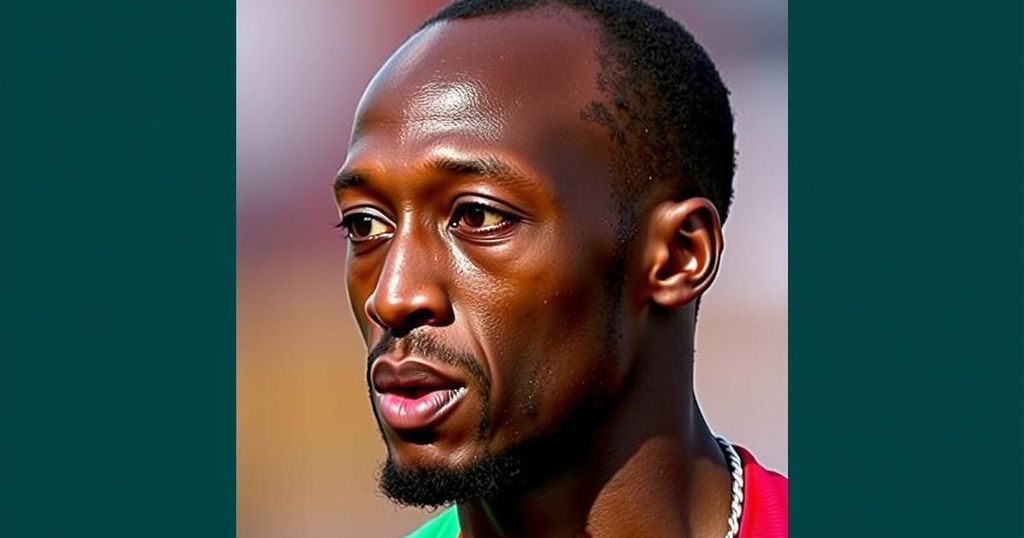Two Men Convicted in the Murder of Ugandan Athlete Benjamin Kiplagat

Two men, Peter Ushuru and David Ekai, were found guilty of murdering Kenyan-born Ugandan athlete Benjamin Kiplagat on December 31, 2023. Justice Reuben Nyakundi relied on scientific evidence, including CCTV footage showing the men chasing Kiplagat and threatening him with a knife. Both defendants denied their involvement, with Ushuru claiming to be at a nightclub and Ekai stating he was a victim of robbery. They will be sentenced on November 4.
Two individuals have been found guilty of the murder of Kenyan-born Ugandan athlete, Benjamin Kiplagat, by the Eldoret High Court. Justice Reuben Nyakundi delivered the ruling on Monday, outlining the connections established by scientific evidence implicating Peter Ushuru, aged 30, and David Ekai, aged 25, in the tragic incident that occurred on December 31, 2023. The court noted that Ekai was riding a boda boda, a motorcycle taxi, while posing as a client of Ushuru during the murder. The prosecution presented compelling evidence including CCTV footage that captured the two defendants pursuing Kiplagat as he drove his pickup truck towards his residence in Kimumu Estate, along the Eldoret-Iten highway. The footage further depicted one of the assailants brandishing a knife and threatening the athlete, with the boda boda rider acting as an accomplice. Justice Nyakundi remarked, “Scientific evidence that was produced before my court during the trial places the two of you at the scene of the brutal murder on the night of December 31, 2023, at Kimumu Estate on the outskirts of Eldoret town.” Both defendants denied their presence at the crime scene. Ushuru claimed he had been enjoying a night out at a nightclub in Eldoret during the incident, asserting, “I was enjoying a good time at a nightclub in Eldoret town on the night the said athlete was waylaid and killed by some people whom I do not know.” He also alleged police misconduct when officers raided his home and confiscated his belongings. Ekai provided a different account, indicating that he had been transporting customers around Eldoret that evening. He claimed to have been robbed by an assailant he had agreed to take to Kimumu. “I met a customer in Eldoret town who asked if I could take him to Kimumu estate and I agreed on the condition that he pay me Sh300 for the journey to his house,” he explained. He recounted how he was coerced into surrendering his motorbike to this armed individual, further stating, “I obliged and surrendered my motorbike to him for fear of being harmed by the stranger whom I had never met. He then took off with my motorbike and left me stranded.” Subsequently, he ordered another motorcycle to return home, where he was later apprehended by law enforcement. Both accused were represented by attorneys Mathai Maina and George Sonkule, and they are set to receive their sentencing on November 4.
The case revolves around the brutal murder of Benjamin Kiplagat, a noted 3,000 meters steeplechase athlete originally from Kenya. On December 31, 2023, Kiplagat was attacked as he drove home, a crime allegedly involving the two defendants, Peter Ushuru and David Ekai. The case gained prominence not only due to Kiplagat’s athletic stature but also due to the circumstances of the crime involving pursuit and weapon threats. The court’s reliance on scientific evidence and CCTV footage underlines the importance of technology and forensic science in modern law enforcement and judicial processes. The impending sentencing on November 4 will conclude this high-profile case.
The Eldoret High Court’s ruling marks a significant step in the pursuit of justice for Benjamin Kiplagat, underscoring the power of scientific evidence in legal proceedings. Despite claims of innocence from both defendants, the evidence presented was compelling enough for Justice Nyakundi to declare them guilty. As society awaits the final sentencing on November 4, this case highlights critical issues surrounding crime, justice, and accountability in the context of violence against public figures.
Original Source: nation.africa








